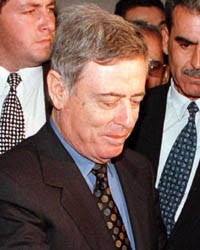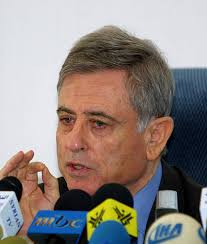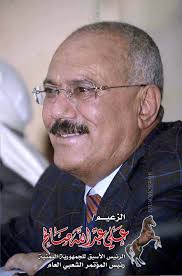Syrian Vice President Abdel Halim Khaddam emphasized the profound and enduring nature of the relations between Kuwait and Syria, stating that Syria is always committed to enhancing these relations across various domains. During his interview with the delegation of the Kuwaiti Journalists Association, led by Secretary Adnan Al-Rashed, Khaddam conveyed his congratulations to Sheikh Sabah Al-Ahmed Al-Sabah on his appointment to form a new government in the brotherly State of Kuwait. He expressed his wishes for Sheikh Sabah’s success in serving Kuwait and the causes of the Arab nation, as he has consistently demonstrated dedication in various Arab, regional, and international forums over the decades.
Khaddam further stated, “We hold great respect for Sheikh Sabah, with whom we share a deep friendship, brotherhood, and affection.” He emphasized that Kuwaiti-Syrian relations will continue to deepen and strengthen across all areas through collaborative efforts between officials from both countries, guided by the respective governments.
Khaddam also discussed the situation in the Arab arena, the issue of Iraq, developments in the Arab-Israeli conflict, and the peace process in the region. Regarding the Arab situation, he highlighted the need for addressing it to enhance Arab capabilities in promoting and safeguarding their interests. He emphasized that any gaps in the Arab situation could lead to negative consequences, necessitating a comprehensive review within a clear and unified program that all parties are willing to implement.
Reflecting on the situation before the collapse of the Iraqi regime’s invasion of Kuwait, Khaddam stated, “If the situation had been favorable, Saddam Hussein would not have dared to invade Kuwait. Syria took immediate action by reaching out to many Arab brethren and standing by Kuwait.” Addressing the issue of Iraq, Khaddam clarified, “Our aim was to overthrow Saddam’s regime, but we do not desire the disintegration of Iraq.” He warned about the potential impact of Iraq’s disintegration on multiple Islamic countries, emphasizing the importance of building a state, establishing security, and promoting stability within Iraq.
Khaddam emphasized that Iraq is likely to face prolonged instability. He pointed out that the composition of the council formed in Iraq includes individuals who are unfamiliar with the country due to their prolonged absence, rendering them unknown to Iraqis. He stressed that nations are not built from abroad, and leaders do not emerge from outside.
Khaddam advocated for an Arab solution to the situation in Iraq, stating that the future of Iraq presents a significant challenge. He expressed concerns that the current situation in the country does not offer a clear path out of the crisis, and the current composition of the council is insufficient to lead Iraq towards a resolution.
He emphasized that addressing the situation in Iraq is an integral part of addressing the overall Arab situation. Just as the October 1973 war was a decision made by the Arabs, the decision to establish peace in Iraq should also be an Arab decision reached through a meeting where a formula and ideas can be agreed upon to resolve the crisis. This is not a contentious issue among Arabs because the Arab world bears the responsibility of pulling Iraq out of its current predicament. He highlighted that an Arab solution would restore confidence among Iraqis and prevent the disintegration of Iraq.
During the meeting, the participants discussed the Arab-Israeli conflict and the importance of Arab solidarity in strengthening the Arab position to achieve a just and comprehensive peace based on internationally recognized resolutions.
Khaddam commented, “There has been an Arab failure in implementing the resolutions of Arab summits on this matter. Last year, the Beirut Arab Summit endorsed the initiative put forth by His Highness the Crown Prince of Saudi Arabia, Prince Abdullah bin Abdulaziz, but Israel took actions to undermine it through its practices in the Palestinian territories. Now, the issue of the final solution to the Palestinian problem in 2005 has been raised, with the establishment of a Palestinian state referenced in the road map.” He asked, “Has this state been recognized by the Quartet, and has it determined the fate of Palestinian refugees or the issue of Jerusalem?”
“We are not advocating for war; instead, we are working towards a just and comprehensive peace in the region,” he stated, emphasizing that the real interests of the United States of America align with those of the Arab nations.
He underscored the role of the media and press in addressing the Arab situation, stating that “the media should focus on effecting a significant change in political, economic, and cultural structures, and should envision a new Arab world. The wider the gap, the more difficult it becomes for a single Arab country to bridge it alone.”
Khaddam recounted the events in 1973 when he traveled to Iraq for mediation and subsequently visited Kuwait, where he met with the late Amir of Kuwait, Sheikh Sabah Al-Salem. He mentioned Kuwait’s willingness to seek a solution through the implementation of the agreement signed in 1963 between Iraq and Kuwait during the tenure of Prime Minister Ahmed Hussein Al-Bakr, which had been rejected by Baghdad according to Al-Bakr’s remarks, referring to the ambitions of the former Iraqi regime in Kuwait.




